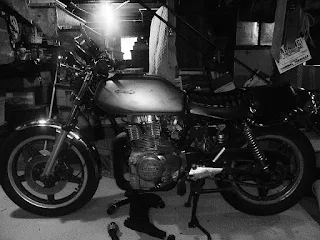In the story, two traveling monks reached a river where they met a woman. The woman was wealthy and had porters for her litter, but the porters were afraid to cross the river carrying their mistress. The woman was bitter and cursed the servants. When she saw the two monks, she angrily demanded that they carry her to the other side.
The young monk hesitated, uneager to help someone who appeared so spiteful, yet the old monk silently picked her up onto his shoulders, transported her across the water, and put her down on the other bank. She did not thank him. Instead she continued to spit venom at the monk, complaining and cursing as he walked away.
.
As the monks continued on their journey, the young monk was brooding and preoccupied.
Unable to hold his silence, he spoke out.
Unable to hold his silence, he spoke out.
"That woman was cruel, and when you helped her, she offered you no gratitude. Instead she cursed you. You should not let her treat you that way."
"Brother," the second monk replied, "I set her down on the other side, while you are still carrying her."
I learned long ago that the way people treat you has little to do with your actions or your value as a human being. Our ego, constantly insists that we deserve respect. So much so, that we think this is the calculation of our worth.
What I have found in my two careers as a journalist and as a nurse is quite different:
What I have found in my two careers as a journalist and as a nurse is quite different:
People will yell at you whether you do the right thing or the wrong thing.
People will resent you whether you tell them the truth or a lie.
People will treat you cruelly whether you help them or harm them.
Thus, if their treatment of you is independent of your actions, you should not let their attitude dictate how you proceed in the world. Particularly in nursing, people come into our care with a lifetime of emotional pain that we cannot expect to repair in our short encounter with them. Some live lives so fettered by darkness that they develop antibodies to kindness and light.
People so often treat the world based on their pain and their ego, not on the human being in front of them. So we should not let their behavior dictate ours. Nor should we take personally the condition of their soul. They may have been broken long before you encountered them and they likely will be broken when you walk away.
In the meantime, you do what is right, because it is right not because of expected praise or gain. The elder monk did not expect kindness from the rich old woman, nor did he let it bother him.
People so often treat the world based on their pain and their ego, not on the human being in front of them. So we should not let their behavior dictate ours. Nor should we take personally the condition of their soul. They may have been broken long before you encountered them and they likely will be broken when you walk away.
In the meantime, you do what is right, because it is right not because of expected praise or gain. The elder monk did not expect kindness from the rich old woman, nor did he let it bother him.
We should help, we should be kind, we should tell the truth, we should do the right thing not in some expectation of reward, but rather, because it is the right thing.
It is OUR actions that define us. Because we are kind, because we are truthful, we do not allow others to germinate unkindness, mendacity or cruelty within us.
It is easy to allow mistreatment to fester in us, to claw at our awareness such that we do not see everything good around us. Resentment is a handicap to living.
Ed's Note: The version of this story is from Zen Shorts a book by John J. Muth. The original story referred to a religious prohibition of monks touching women. Muth's version is much more helpful and the book is wonderful.
It is OUR actions that define us. Because we are kind, because we are truthful, we do not allow others to germinate unkindness, mendacity or cruelty within us.
It is easy to allow mistreatment to fester in us, to claw at our awareness such that we do not see everything good around us. Resentment is a handicap to living.
Ed's Note: The version of this story is from Zen Shorts a book by John J. Muth. The original story referred to a religious prohibition of monks touching women. Muth's version is much more helpful and the book is wonderful.

